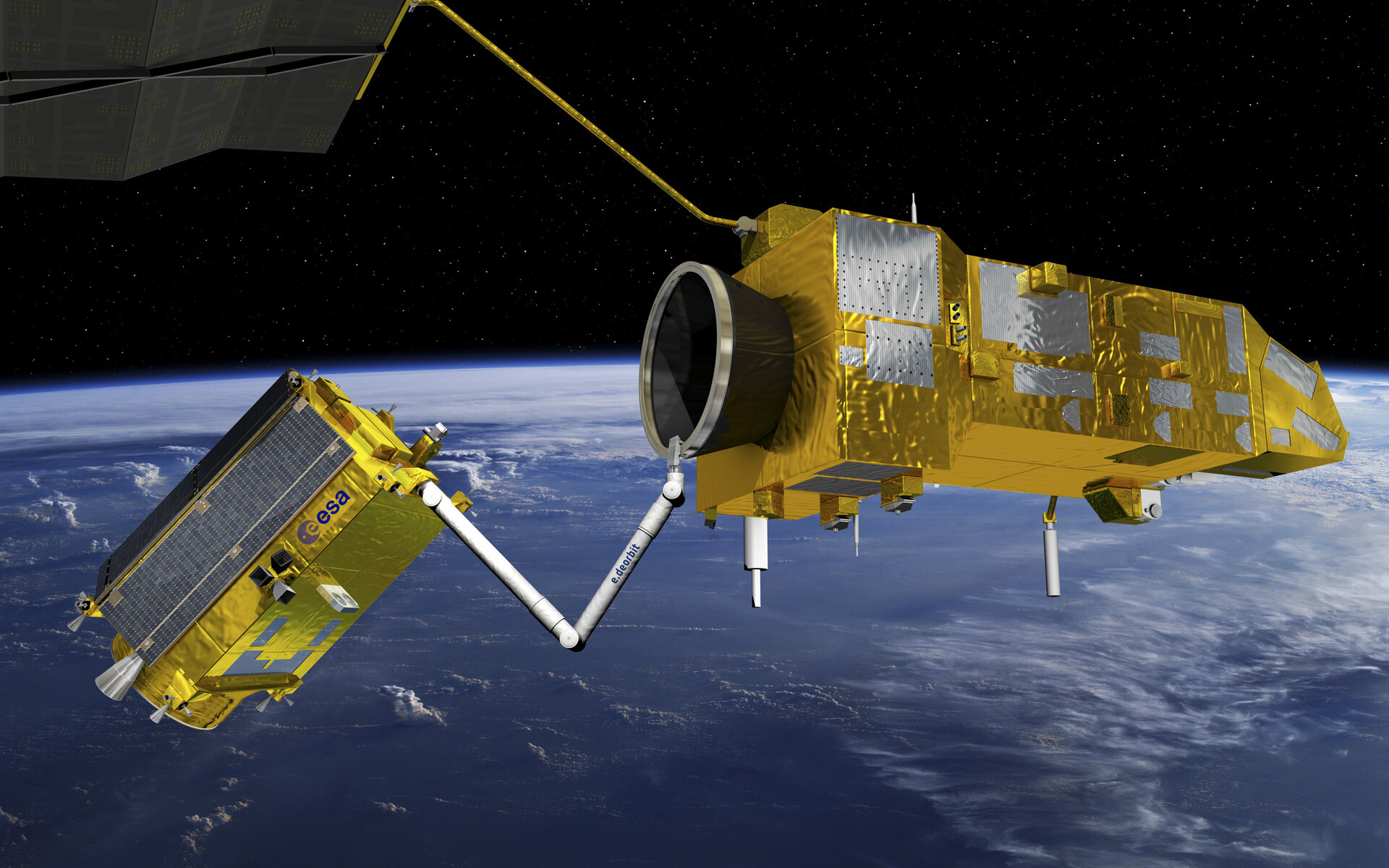Frictionless pivot to help de-orbiting satellites
A new thrust vector control (TVC) mechanism has been developed to help de-orbit satellites at the end of their lives. The activity supports ESA’s CleanSpace initiative to use solid rocket propulsion as a safe and quick way to deorbit large satellites through controlled reentry.
The TDE activity, with Almatech (CH), D-Orbit (IT), Sitael (IT), had to find a solution to the challenge of building a highly reliable solid rocket motor that would always work even after more than 15 years dormant in space.
The prototype they came up with is a cost-effective modular and scalable concept based on compliant and contactless
technologies that deliberately avoids the inherent risks associated with sliding contacts.
The fully frictionless flex-gimbal vectoring mechanism with novel customized flexible pivots was selected for its relative simplicity, good performance, high reliability, costeffectiveness and ease of testing without safety concerns. The mechanism jamming risks were greatly reduced, it had no need for high temperature sealing and survived challenging testing and development (see image for the flow velocity profile using a 30 degree flap deflection model with 6500 Pa ambient pressure) including pressure, testing in vacuum, shock tube testing and more.
It’s also important to note that since the number of active components is low the reliability of this concept for long lifespans is much higher.
The mechanism is adaptable for deorbiting multiple types of spacecraft with different motor cluster configurations and mission scenarios, such as reorbiting or trajectory change. The versatile technology is an add-on solution that eliminates the need for a system that is deeply integrated into the vehicle.
The next steps for the activity are to reach TRL5/6 with a detailed design of the TVC mechanism and related engineering model manufacturing and testing.
T719 - 403MP closed and was presented in 2019.


